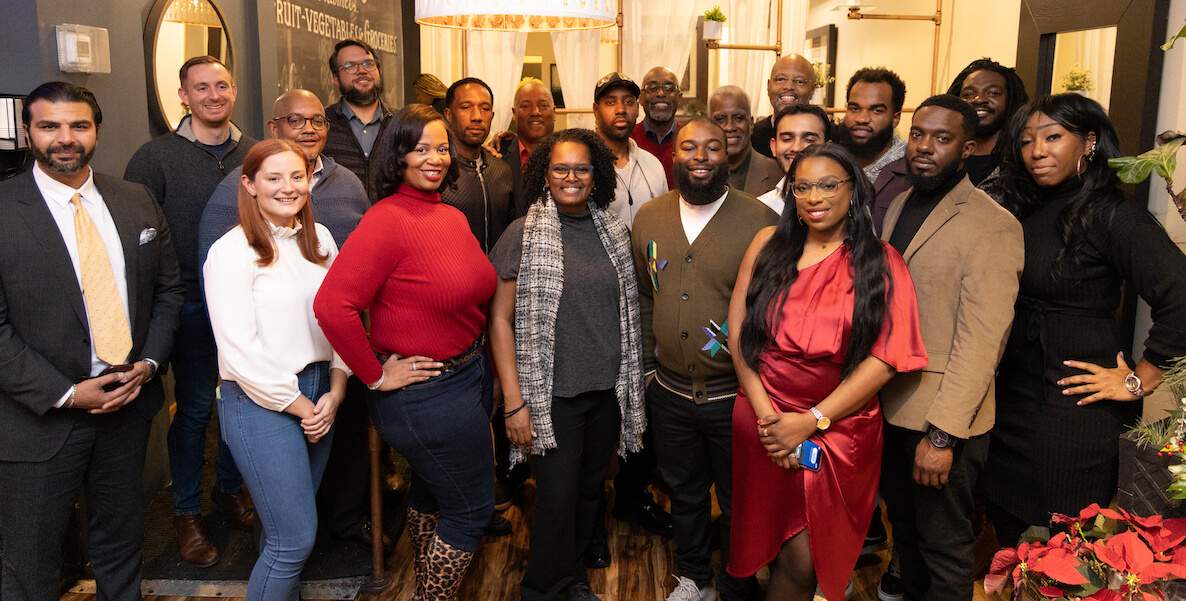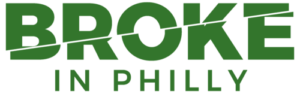Kevin Williams was frustrated.
After decades of helping small businesses and technology companies scale their operations with his company, SMART Group, he still saw inequities. Black entrepreneurs like himself struggled to get the funding they needed to build their companies. In pitch rooms, he’d see White-owned companies receive larger investments from venture capitalists. In private, Black entrepreneurs would share their struggles to access capital.
The numbers back Williams’ observations. Nationally, Only 13 percent of Black-owned companies and 20 percent of Hispanic-owned firms received the financing they sought when they applied for traditional loans, per the 2021 Small Business Credit Survey. Comparatively, 40 percent of White-owned businesses received the financing they sought.
“This is a real serious inequity,” Williams says. “Some people will say, You know what, I got mine, so it’s not my problem, but I really feel like it is our problem.”
Williams knew he wanted to help other Black and Brown entrepreneurs succeed, as he had. So, together with his friends James Burnett and Thomas Webster, he launched the Black Squirrel Collective, a business that helps connect mid-career developers and small businesses with the resources they need to succeed.
Building Black Squirrel Collective
Williams, Burnett and Webster began working toward creating the company that would become Black Squirrel Collective in 2019. They dedicated more time and energy to the project in 2020 when a confluence of factors — Covid, the potential for a recession, protests over the murder of George Floyd, and flooding — converged, putting strain on business owners and highlighting the inequities Black and Brown entrepreneurs face.
The trio felt uniquely positioned to provide support to these communities and to connect them with resources because of their own careers. Williams provided support to businesses, helping them create business models, sales strategies and update their technological capabilities through his work with SMART Group and as a leader of the B Smart workshops at Drexel University. Burnett worked in the financial services sector, leading Community Development Financial Institutions (CDFIs), which give loans to underserved populations and businesses. Webster had worked with incubators and accelerators in the past in the sciences and technology sectors.
“We’re working from inside the community,” Webster says. “We partner and collaborate with the community and take an internal approach instead of an external approach.”
“I don’t know that we could do what we’re doing right now, even though we’re older in the game, 20 years ago because we wouldn’t have had the same networks, we wouldn’t have had the same access to resources,” Burnett says.
As they planned for the business, the team came up with a core mission: investing in business improvement and neighborhood revitalization. They decided to begin by creating a real estate development accelerator program, Philly RiSE, targeted at Black and Brown developers, because they were frustrated with gentrification in Philly and the lack of opportunities for people of color in the industry.
Nationwide, Black-owned real estate developers make up just .4 percent of the industry, and Latinx companies make up only .16 percent of the industry, according to a 2023 report for the consulting group Grove Impact.
About 11 percent of the city’s poorer neighborhoods experienced gentrification, when higher-income residents compete for housing and push lower-income residents out of a neighborhood, between 2000 and 2014, per a 2019 study from the Federal Reserve Bank of Philadelphia, often displacing original residents and driving up property values as wealthier people moved in. Williams, Burnett and Webster hope that by helping Black and Brown developers grow their businesses, the accelerator can reduce some of the effects of gentrification, by helping local residents invest in their communities and build wealth.
“We’re working from inside the community,” Webster says. “We partner and collaborate with the community and take an internal approach instead of an external approach.”
Uplifting Black and Brown developers
The Philly RiSE accelerator program lasts 22 to 24 months and is built around four pillars: education and training, mentoring and coaching, access to capital, and access to land. Participants take courses through the Urban Land Institute during the first phase of the accelerator, before receiving up to five vacant lots for development through the Philadelphia Housing Development Corporation’s Land Bank. As they develop the properties, participants receive mentorship and advice from the Black woman-led real estate development firm AR Spruce.
The mentorship component is key to Webster, Williams and Burnett, who remember struggling to find role models as they were launching their careers.
“When I first started my first business over 40 years ago, there was nobody who looked like me I could go to for advice or any type of consultation to understand what it would take to be successful,” Webster says. “We want to change that … That’s part of what drives us is, we’ve all had those individual experiences.”
To apply, participants need to have previous experience in real estate development. Webster says they look for companies that have worked on five to ten properties in the past. They wanted to focus on mid-career developers, because the city already has programs, like Jumpstart Germantown, that support and train early-career developers.
Developers in the program put up five percent of the capital for their projects. Another ten percent is funded through Black Squirrel Collective and the other 85 percent is provided by Black-owned CDFIs or the Reinvestment Fund. Philanthropic donations funded the program’s launch. The company plans to keep seeking donations to fund the first few cohorts. Over time, returns from Black Squirrel’s investment in the cohort’s development projects will help fund the program and provide revenue for the business.
Philly RiSE received about 40 applications for its first cohort, from which the Black Squirrel Collective team selected 12 participants who will develop about 50 properties in the city. The program is designed so that 51 percent of the houses built through the accelerator will be affordable. The first cohort began the program in October of last year. They plan to launch a second cohort of the program in 2024.
If the program is successful, they’ll continue expanding it in Philly and beyond, and they’ve already received 30 inquiries from other cities and states about launching similar programs.
“I don’t know that we could do what we’re doing right now, even though we’re older in the game, 20 years ago because we wouldn’t have had the same networks, we wouldn’t have had the same access to resources,” Burnett says.
Mark Lawson is the founder of the real estate development company ReNew and a participant in the accelerator’s first class. For the past 20 years, Lawson has been flipping homes in the Philadelphia region. Two years ago, he began developing single-family home projects from the ground up, building mostly near Temple University, and he loved it.
He applied for the accelerator because he wanted to grow his business and develop more properties. He appreciated the opportunities Philly RiSE has given him to network with contractors, funders and mentors in the industry. He also appreciated the access to land provided by the program and the opportunity to gain experience building both affordable and market-rate single-family homes. He’s now working to develop five single-family homes, three of which will be designated as affordable units, through the program.
“It provides the tools necessary in order to scale and they provide great mentors,” Lawson says.
Keeping small businesses in business
In addition to working with real estate developers who want to invest in their own communities, Black Squirrel Collective plans to help revitalize neighborhoods by providing support to small and medium-sized businesses through its BizScoreline assessment tool.
During the pandemic, the partners realized a number of businesses weren’t prepared for one emergency, let alone several at once. Yet, that’s what many in the city faced, as they tried to juggle the financial impacts of pandemic-related closures, flooding, and other crises. Some didn’t have insurance. Others weren’t equipped to pivot to the digital payment systems needed to continue operating during the pandemic.
“I’ve talked to so many businesses in the last year who’ve been around for three to five years who don’t have insurance,” Burnett says. “A lot of small businesses don’t see the value in paying for those things until they need it.”
BizScoreline has three different levels. The first offers businesses a basic assessment that lets businesses know what their challenges are and gives them a sustainability score. The second level includes an industry analysis in addition to the basic assessment, which allows businesses to see how they’re positioned compared to others in their sector. The third level includes those two ratings and a concierge service, where businesses are paired with a guide who will help them address any pain points identified by the assessment. The top tier of the service costs about $1,000 per business.
Since the service just launched in March, the team at Black Squirrel Collective didn’t have a lot of data to share on how the program has helped businesses. They plan to partner with agencies, like CDFIs and community development corporations, who will pay a fee to provide the service to enterprises in their corridor and they’re working with the Philadelphia Association of Community Development Corporations to start building those relationships.
“They’re finding businesses that are unstable, businesses that may very well go out of business if they don’t get support,” Webster says. “What we do is we go in and re-engage those businesses.”
As with the Philly RiSE accelerator, Black Squirrel Collective aims to connect small businesses with services — loan and grant programs, CDFIs, insurance and other financial support services — that are already operating in Philly.
“You don’t have to recreate the wheel,” Williams says. “It’s just like you plant a tree and if it has a good root system, then you walk away from it because it’s going to take care of itself.”
Correction: A previous version of this post referred to AR Spruce as a construction firm. They are a real estate development firm.
![]() MORE ON ENTERPRISE EQUITY FROM THE CITIZEN
MORE ON ENTERPRISE EQUITY FROM THE CITIZEN





